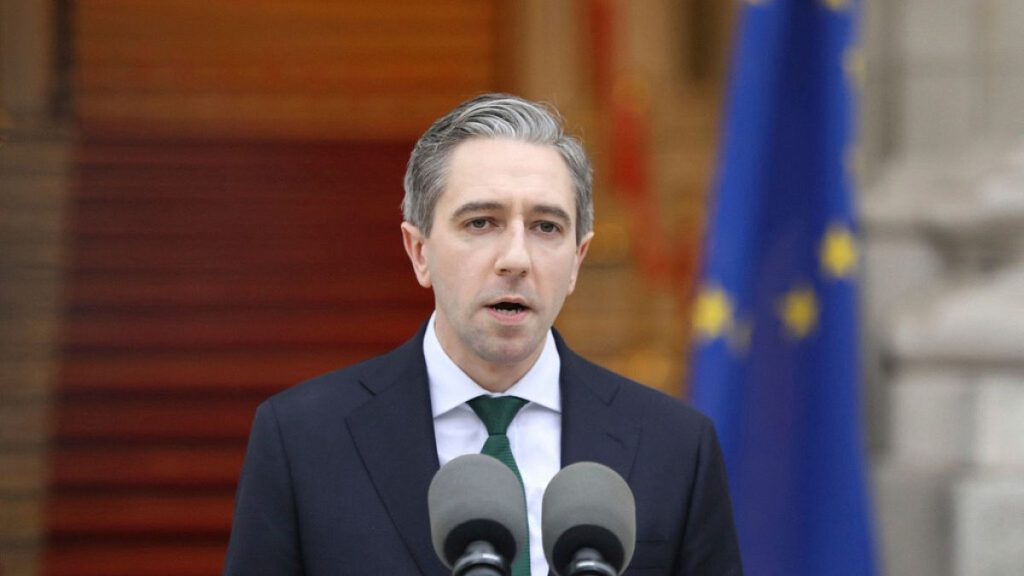Irish Taoiseach Simon Harris announced that a general election would be held on Friday, 29 November, marking the start of the 2024 general election campaign. Harris triggered the election by requesting a dissolution of the current Irish parliament, or Dáil, and thanked his colleagues in the Fine Gael party, as well as coalition partners Fianna Fáil and the Greens, for their work together. Despite some disagreements, he called for a safe and respectful campaign and encouraged all Irish citizens to vote, emphasizing the importance of using their voices in the democratic process. Ireland’s president must approve Harris’ request to dissolve the Dáil, which is expected to happen as a formality.
Harris, who took over as head of Ireland’s three-party coalition government in April after the resignation of Leo Varadkar, faces several key issues that are likely to dominate the election campaign. The country is grappling with a housing crisis and rising cost of living, which are expected to be major concerns for voters. Additionally, the impact of Donald Trump’s recent re-election to the US presidency on the Irish economy, particularly in relation to US tech companies that provide employment in Ireland, is likely to be a prominent topic during the campaign. Harris chose to call the election before the end of the government’s five-year term in March, partly in response to opposition party Sinn Féin’s decline in popularity.
Sinn Féin, a leftist nationalist party, has faced challenges in retaining support as anti-immigrant sentiment grows in Ireland. The party’s focus on pursuing a united Ireland had previously garnered significant support, leading to speculation about a potential referendum on the issue. However, the party has struggled to maintain its momentum as it finds itself out of step with some of its core constituency. The decline in Sinn Féin’s popularity played a role in Harris’ decision to call the election in November rather than waiting until March, as originally permitted.
The upcoming election is anticipated to be highly competitive, with a range of issues at the forefront of voters’ minds. The campaign is likely to be shaped by debates over housing, cost of living, the Irish economy’s reliance on US tech companies, and the impact of the Trump presidency on international relations. As candidates begin campaigning in earnest, they will have the opportunity to engage with voters and present their platforms on these critical topics. The election will be a chance for the Irish public to make their voices heard and influence the future direction of the country through their votes on 29 November.
In his announcement of the general election, Taoiseach Simon Harris emphasized the importance of democratic participation and encouraged all Irish citizens to use their voices in shaping the country’s future. He called for a respectful campaign and wished all candidates luck as they prepare to compete for seats in the Dáil. The dissolution of parliament marks the beginning of a new chapter in Irish politics and sets the stage for an election that will have significant implications for the country’s governance and policies in the coming years. Voters will have the opportunity to weigh in on key issues and decide the direction they want Ireland to take in response to the various challenges it faces.


